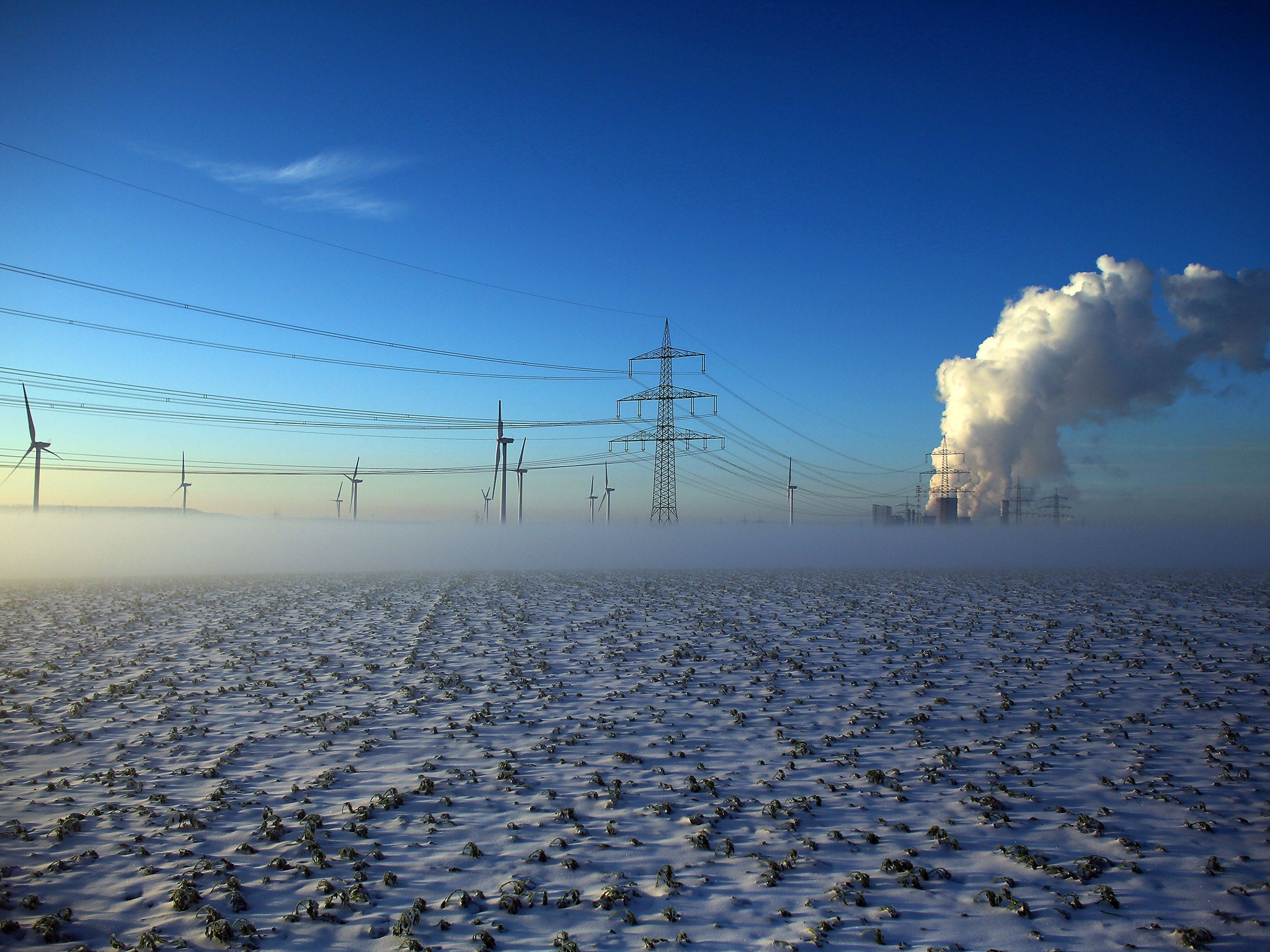Book reviews on the environment: Don't Even Think about it by George Marshall and This Changes Everything by Naomi Klein
OK, everyone! Think about this stuff, or the planet gets it

Your support helps us to tell the story
From reproductive rights to climate change to Big Tech, The Independent is on the ground when the story is developing. Whether it's investigating the financials of Elon Musk's pro-Trump PAC or producing our latest documentary, 'The A Word', which shines a light on the American women fighting for reproductive rights, we know how important it is to parse out the facts from the messaging.
At such a critical moment in US history, we need reporters on the ground. Your donation allows us to keep sending journalists to speak to both sides of the story.
The Independent is trusted by Americans across the entire political spectrum. And unlike many other quality news outlets, we choose not to lock Americans out of our reporting and analysis with paywalls. We believe quality journalism should be available to everyone, paid for by those who can afford it.
Your support makes all the difference.If Christianity were promoted like climate change is, “it would amount to no more than reading a Gideon’s Bible in a motel chalet and trying to be nice to people” says the climate educator George Marshall.
It is time, he argues in Don’t Even Think About It ... to learn from the religions, as well as from advertisers, teachers, film-makers, behavioural scientists and others, to work out how to make climate change something people really care about.
There are no graphs in Marshall’s book and he leaves the science until the end. His point is that it’s not really the statistics that will change people’s minds: it’s the story. Instead of numbers, he gives examples, meets people around the world, listens to different points of view, and explores how some people persuade other people to do things (including tricks of rhetoric such as using narratives and the word “we”).
His aim is to explain why the human brain has evolved to put aside things that seem too painful to accept and act on immediate rather than future dangers. “Have you seen what [Hurricane] Sandy did?” asks the mayor of a New Jersey town almost destroyed by the 2012 storm. “Climate change, duh, of course it is happening. But it is bigger than anything we could make a difference on. We just want to go home.”
The documentary style sometimes veers deliciously towards Louis Theroux-type nuttiness. At one point Marshall meets some Tea Party activists in Texas. These are people who keep semi-automatic pistols between the front seats of their (big) cars, “where normal people keep their small change,” and yet who like a home-baked meal and a chat about the climate on a Friday night. Then there’s the high-profile US climate change denier Myron Ebell who describes his work as a “David vs Goliath” struggle – he thinks of himself as David.
Marshall is struck by how often people who oppose action on climate change are like mirrors to those who advocate it. And this similarity gives him a clue about one way to get over the problem, which is to stop all this good vs evil dichotomy and focus on co-operation.
The “solutions” chapter was the hardest to read: it had plenty of ideas, but too many capital letters, which my brain seems evolutionarily predisposed to skip.
This Changes Everything by the No Logo author Naomi Klein is another articulate, well-researched (and happily graph-less) book. Like Marshall’s, it is low on jargon and high on story, but with the subtext that this was all caused by capitalism, but cannot be solved by capitalism.
Coincidentally, both books have no picture on their covers, instead using block capital sans serif lettering, as if to say: “These are manifestos for huge social change. These books are not messing around”.
Klein’s book was written – she acknowledges in the name of “transparency” – while she was going through miscarriages, fertility treatment, despair and, finally, the birth of a long-wanted child into an uncertain world. It is more polemical against corporations – that is, after all, Klein’s speciality. And it has more horror than Marshall’s.
It tells a frightening story about climate and the awful things that seem about to happen if temperatures keep rising. It is very scary about the involvement of corporations (and even some environmental organisations) in muddying the waters and complicating the issue – so it makes it hard for individuals to work out what to do.
But the scariest scene of all, the one that has kept me awake at night (as it did Klein), is one in which she visits a Royal Society gathering at Chicheley Hall in Buckinghamshire, partly paid for by the Bill Gates Foundation. Geoengineering is a word that we should all learn quickly. The briefing dealt with a serious proposal to spray sulphate aerosols (sulphuric acid in little drops) into the atmosphere, which would effectively block the sun, and cause temperatures to fall. This means we would be able to keep using petrochemicals for a few generations longer. It also means that blue skies would be a thing of the past, Africa’s equatorial region would suffer serious drought, and once the process started it couldn’t be stopped because all the warming that had been held back would hit the planet in a tidal wave of heat.
There are big forces at work, and big decisions to make, and we need to be aware of all of it. So read these books, even if the words “climate change” make you fall asleep. Otherwise someone will explode sulphuric acid into the sky, unchecked because the rest of us were not watching, because an evolutionary trait makes us not think about stuff that seems too huge to contemplate.
Join our commenting forum
Join thought-provoking conversations, follow other Independent readers and see their replies
Comments